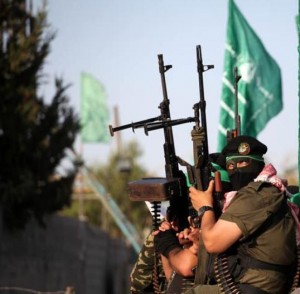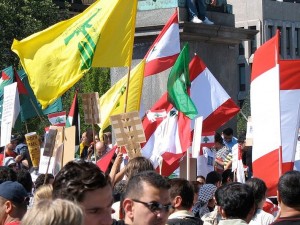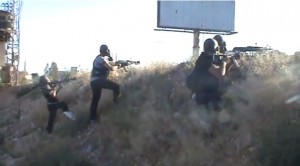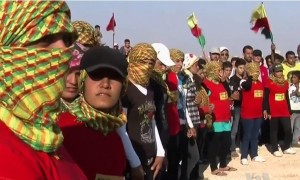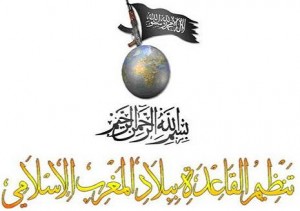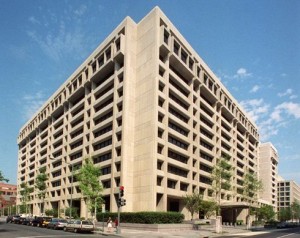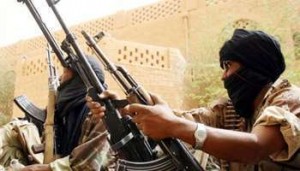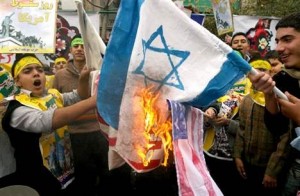Executive Summary
- On February 18, President Abdelmadjid Tebboune dissolved the People’s National Assembly (APN) and called for early legislative elections, slated for June 12. The announcement came ahead of the two-year anniversary of the anti-government protest movement on February 22.
- This measure was aimed at appeasing the public’s anti-government sentiments. However, protesters will perceive the upcoming elections as a means for former President Abdelaziz Bouteflika’s allies to remain in power, which will therefore result in a low voter turnout.
- While interdependent “Hirak” candidates are participating in the elections, as the movement lacks clear organization or leadership, it will only divide the votes of the public, preventing one group or individual from earning a significant majority and result in a polarized parliament. This will challenge the legislative process following the elections and negatively impact the economy. The ensuing political instability will undermine public confidence in the government.
- Overall, nationwide “Hirak” demonstrations will persist in the weeks leading up to and following the elections. In major cities, including in Algiers, these will generally garner turnouts in the mid- to high-thousands. A significant security deployment will thus be recorded at key focal points in Algiers in the coming weeks to prevent the mobilization of protesters.
- Travel to Algiers may continue while adhering to security precautions regarding civil unrest. It is advised to maintain heightened vigilance in the vicinity of the Grand Post Office, Martyrs’ Square, Place Maurice Audin, and Didouche Mourad Street as these locales serve as focal points for anti-government protests.
Assessments & Forecast
Legislative elections unlikely to alleviate widespread anti-government sentiments, low voter turnout likely
- President Abdelmadjid Tebboune’s decision on February 18 to dissolve the People’s National Assembly (APN) and hold early legislative elections on June 12 instead of in 2022 came ahead of the two-year anniversary of the “Hirak” movement on February 22. It was aimed at appeasing the public’s grievances with the political system, which had persisted despite the election of a new president in December 2019 and the revision of the constitution after the national referendum in November 2020. This is because large segments of the local population continue to perceive these measures as symbolic rather than effective political reform. This is evidenced by the relatively low participation rates in both the presidential elections (39.93 percent) and the national constitutional referendum (23.7 percent) as well as the large-scale nationwide anti-government protests and instances of unrest recorded in the weeks leading up to and following these events. While the momentum of these anti-government protests had subsided in the year prior to the two-year anniversary of the “Hirak” movement, this was primarily due to the outbreak of the COVID-19 pandemic rather than a decrease in anti-government sentiments.
- By holding early legislative elections, Tebboune likely seeks to project a meaningful change in the current political hierarchy. This is because in the previous legislative elections in 2017, the National Liberation Front (FLN), the Democratic National Rally (RND), and the Movement for the Society of Peace (MSP) together won a plurality of seats at 25.99 percent, 14.91 percent, and 6.09 percent, respectively. These parties formed the “Presidential Alliance”, a three party political alliance that was created in 2005 and was close to former President Bouteflika. Hence, by calling for early legislative elections, Tebboune aims to showcase his willingness to implement mechanisms for change and the overhaul of the previous hierarchy. This is further evidenced by the fact that he announced that two civil society blocks will prepare the electoral lists for the upcoming elections as part of an effort to open up the legislative elections to the public.
- An electoral law was included in the revised constitution of 2020 for the first time. This law includes stipulations for candidates’ finances, such as the possibility of state reimbursement for part of the expenses of the electoral campaigns. This would allow independent, particularly younger, candidates with fewer financial resources to also take part in the elections. In line with this, Tebboune has reduced the number of parliamentary seats from 462 to 407 to reduce public spending. The reduced number of parliamentarians could also potentially allow for larger reimbursement for successful candidates. The law further stipulates that any donations greater than 1,000 Algerian Dinar (DZD) must be made by cheque, bank transfer, or debit or credit cards, ensuring greater transparency of campaign funding. These measures overall show Tebboune’s efforts to project that money is not a determining factor for entering politics and that he is responsive to the protesters’ demands for a change in the political status quo in Algeria.
- However, anti-government protests have persisted since February 22, gradually becoming more unruly over recent weeks. Thousands of protesters have also rejected the upcoming legislative elections as they perceive that political parties, such as the FLN and the RND, which were strong supporters of former President Bouteflika, will continue to retain influence within the political system. FORECAST: Hence, protesters will continue to regard the upcoming election process as a means for former President Bouteflika’s allies to remain in power. This is further given that President Tebboune has himself been denounced by large segments of the public for his ties to the former administration, despite his efforts to distance himself from the ruling political parties in Algeria. Against this backdrop, the turnout in the upcoming elections will likely be low, which will undermine the legitimacy of the electoral process, regardless of which party receives the majority of votes.
Lack of organization, clear objectives of ‘Hirak’ protesters to undermine role of independent political candidates in electoral process, potentially result in polarized parliament
- There are segments of the public that have indicated their support for the election process due to the perception that it can be a means for change. This is evidenced by reports that dozens of independent candidates have submitted their lists to participate in the elections in every province. These include young individuals, academics, and professionals that have little to no experience in politics. They have sought to capitalize on the changing political environment by projecting themselves as apolitical and therefore different from the status quo in order to garner support. Moreover, over the past several months, the formation of new political entities seeking to participate in the elections has been recorded. These primarily entail al-Massar al-Jadid, Nida el-Watan, and el-Hisn el-Matine. These groups have portrayed themselves as coalitions of civil society elements and other “Hirak” activists. Al-Massar al-Jadid group, for example, is headed by Moundir Boudene, former Secretary General of the Algerian Students’ Union, who has previously indicated his support for students’ right to participate in the political arena through the anti-government protest movement.
- FORECAST: While this indicates an increased participation of wide segments of society within the electoral process, it could result in a polarized parliament and undermine its stability. This is because the variation of candidates could divide the votes of the public, as no one group or individual may be able to earn a significant majority to become the ruling political party. This challenge can be attributed to the fact that while the “Hirak” movement has persisted over the past two years with relative consistency, the movement has not organized itself into one main group with a clear leader or group of leaders. Moreover, while the movement has persistently called for a political overhaul of the system, it has not put forth any alternatives or ideas of what this reform may entail. The candidates are thus unlikely to have a coherent platform that can meet the demands of the “Hirak” movement. Therefore, none of the independent candidates or new political parties running will receive a clear majority of votes. Moreover, the ruling party, FLN, has witnessed a steady decline amid the changing political scene. This, combined with the lack of strong support for any one “Hirak” political candidate, may result in a hung parliament.
- FORECAST: While it is unclear whether the FLN and the RND will win a plurality of seats, they are unlikely to win enough seats to form a clear majority coalition. Moreover, other political parties, particularly Islamist groups such as the MSP and the National “Binaa” Movement, have recently been attempting to capitalize upon the decline of the FLN and the RND to garner local support. Given that these Islamist groups have a more defined and established voter base due to their ideological clarity and traditional affiliations, they are more likely to win a significant number of votes in the upcoming elections. This is particularly given the anticipated low voter turnout, wherein voters are more likely to have strong affiliations with the more established candidates rather than independent members of the anti-government movement.
- On the other hand, the new political parties that have formed are largely composed of those already in positions of power, political or otherwise, despite their effort to project themselves as “Hirak” political parties. Nida el-Watan, for example, was formed under the chairmanship of Nazih Berramdane, an advisor to President Tebboune. While he has indicated his support for the role of students and the youth in facing the current political challenges in Algeria, the group has nonetheless been perceived by some political activists as a continuation of the ruling political parties seeking to capitalize on the “Hirak” movement to win the legislative elections. El-Hisn el-Matine is headed by Yacine Merzougui, who was an advisor to a former CEO of Algeria’s state-owned oil company and an executive in a senior management team of the organization, whereas Moundir Boudene of the al-Massar al-Jadid group was previously a member of the RND and supported former President Bouteflika’s mandates on several occasions. FORECAST: This will therefore reinforce the perception among significant segments of the population that the new, “independent” political parties are simply a continuation of the old political system. This may further deter support for the electoral process and undermine its legitimacy, even if these parties get some seats in the parliament.
Upcoming elections to challenge legislative process, negatively impact economy; political instability to undermine public confidence in government
- FORECAST: The upcoming elections will therefore bring significant challenges to the legislative process. Political parties will likely have to form alliances in order to form a coalition government. However, as discussed above, the “Hirak” movement does not have any clear organization and lacks ideological compatibility beyond calling for political reform. Meanwhile, the previously ruling parties, such as the FLN, may face significant opposition even if they are reelected to parliament with a plurality of votes. This opposition will come from both the “independent” political candidates as well as the Islamist parties that are seeking to make headway in the upcoming elections. This increasing partisanship within the parliament could in turn hinder the legislation and implementation of political and economic reforms in the country, which will elevate socio-economic grievances among large segments of the populace.
- FORECAST: This anticipated political instability will also adversely impact Algeria’s economic growth. This is because while Algeria has largely had a state-run economy thus far, the government has been seeking to attract foreign private investment over the past year to boost the economy. In August 2020, Algeria amended a law to allow foreign investors to own 100 percent of companies set up in the country with certain exceptions as opposed to only 29 percent, as per previous legislation. This was part of Tebboune’s economic recovery plan, part of which involved economic diversification. Moreover, the state-owned oil company has been signing several contracts with foreign energy companies in order to strengthen the oil-dependent economy. On March 25, for example, the Algerian state-owned oil company and an Italian oil and gas company signed several agreements with regards to the exploration and production of crude oil as well as cooperation on technological research and development. Algeria has also signed similar agreements with American and French oil and gas conglomerates.
- However, political instability serves as a deterrent to foreign investment. For example, it may deter international oil and gas conglomerates from signing further agreements with Algeria’s state-run oil company or potentially hinder the implementation of the agreements that have already been signed. Algeria’s economy has been in significant decline over recent years, particularly amid the COVID-19 pandemic, which has resulted in the global decrease of oil prices. Moreover, Algeria’s oil and gas production has overall declined, with a decrease of eight percent recorded in 2020 as compared to 2019. FORECAST: Against this backdrop, the ensuing political instability in Algeria will likely hinder Tebboune’s economic recovery plan over the coming year. This will further undermine the confidence of the public in the government.
Anti-government protests, civil unrest to persist in lead up to, following June 12 elections
- FORECAST: As evidenced by the nationwide protests recorded following the announcement of the election date to denounce the legislative elections, nationwide “Hirak” demonstrations will persist over the weeks leading up to the elections. This is particularly given precedent of similar developments around the presidential elections in December 2019 and the constitutional referendum in November 2020. These protests will likely gather further traction in light of the unrest recorded during the recent demonstrations. Security forces have attempted to block and disperse anti-government protesters on several occasions in Algiers over recent weeks.
- On May 2, security forces used tear gas to disperse a protest held by firefighters in Algiers to demand an increase in wages and the payment of COVID-19 bonuses. While this was not directly part of the “Hirak” protest movement, it nonetheless showcases the authorities’ growing intolerance towards perceived anti-government activity. On May 3, 230 firefighters were subsequently dismissed for participating in the demonstrations. The authorities have also arrested several prominent activists in the movement, including Karim Tabbou, on April 28. On May 5, the Minister of Justice, Belkacem Zeghmati, submitted a draft bill to criminalize any obstructions to the legislative elections, which could consist of prison sentences of up to 20 years. The Justice Minister’s draft bill to penalize obstructions to the legislative elections with up to 20 years in prison, which could be applicable to those who seek to damage ballot boxes as well as those who seek to “undermine” the proper conduct of the elections, has also prompted protests.
- FORECAST: These measures will elevate the anti-government sentiments of “Hirak” activists and further diminish support for the electoral process. In Algiers, as well as in other major cities, such protests generally garner turnouts in the mid- to high-thousands. This is particularly on Tuesdays and Fridays, which have become symbolic days for the anti-government protesters. In Algiers, Martyrs’ Square usually serves as the starting point for protests on Tuesdays. The Grand Post Office, Place Maurice Audin, Didouche Mourad Street, and 1st of May Square are also key focal points for anti-government protests. In the days leading up to and on the election date, protesters are likely to gather around ballot boxes and other government buildings where the electoral process is being organized. Given the authorities’ heightened sensitivities, a security deployment can be expected at focal points across major cities of Algeria in order to prevent the materialization of large gatherings. There may also be an increase in the arrests of activists under the guise of “undermining national security” in order to demoralize activists and reduce the momentum of the protest movement. However, such measures will instead bolster the “Hirak” movement, which will continue to persist in the weeks and months following the elections.
- On the other hand, in the days leading up to the 2019 presidential elections, some protests were also recorded in outlying areas of Algeria calling on locals to cast their vote. This can be attributed to the fact that locals in these areas prioritize economic reform over political ones due to the overall deterioration of socio-economic conditions in the outlying parts of the country. FORECAST: It is also possible that similar protests will be held in support of these elections. This is particularly given that, as discussed above, a low voter turnout could overall undermine the legislative process and result in a polarized parliament, with fewer and more divided votes. The ensuing legislative challenges will more adversely impact those in outlying areas of the country. However, in the weeks and months following the elections, these communities will resume anti-government protests as their economic hardships persist.
Recommendations:
- Travel to Algiers may continue while adhering to security precautions regarding civil unrest. Contact us at [email protected] or +44 20-3540-0434 for itinerary and contingency support options.
- In Algiers, it is advised to maintain heightened vigilance in the vicinity of the Grand Post Office, Martyrs’ Square, Place Maurice Audin, and Didouche Mourad Street as these locales serve as focal points for anti-government protests.
- It is further advised to maintain vigilance in the vicinity of public squares, government buildings, judicial courts, and police stations in other cities of Algeria as these serve as focal points for anti-government protests.
- Avoid discussing anti-government discourse in public spaces, including on social media, particularly pertaining to the anti-government protest movement and the upcoming June 12 legislative elections due to the risk of detention by the authorities.







